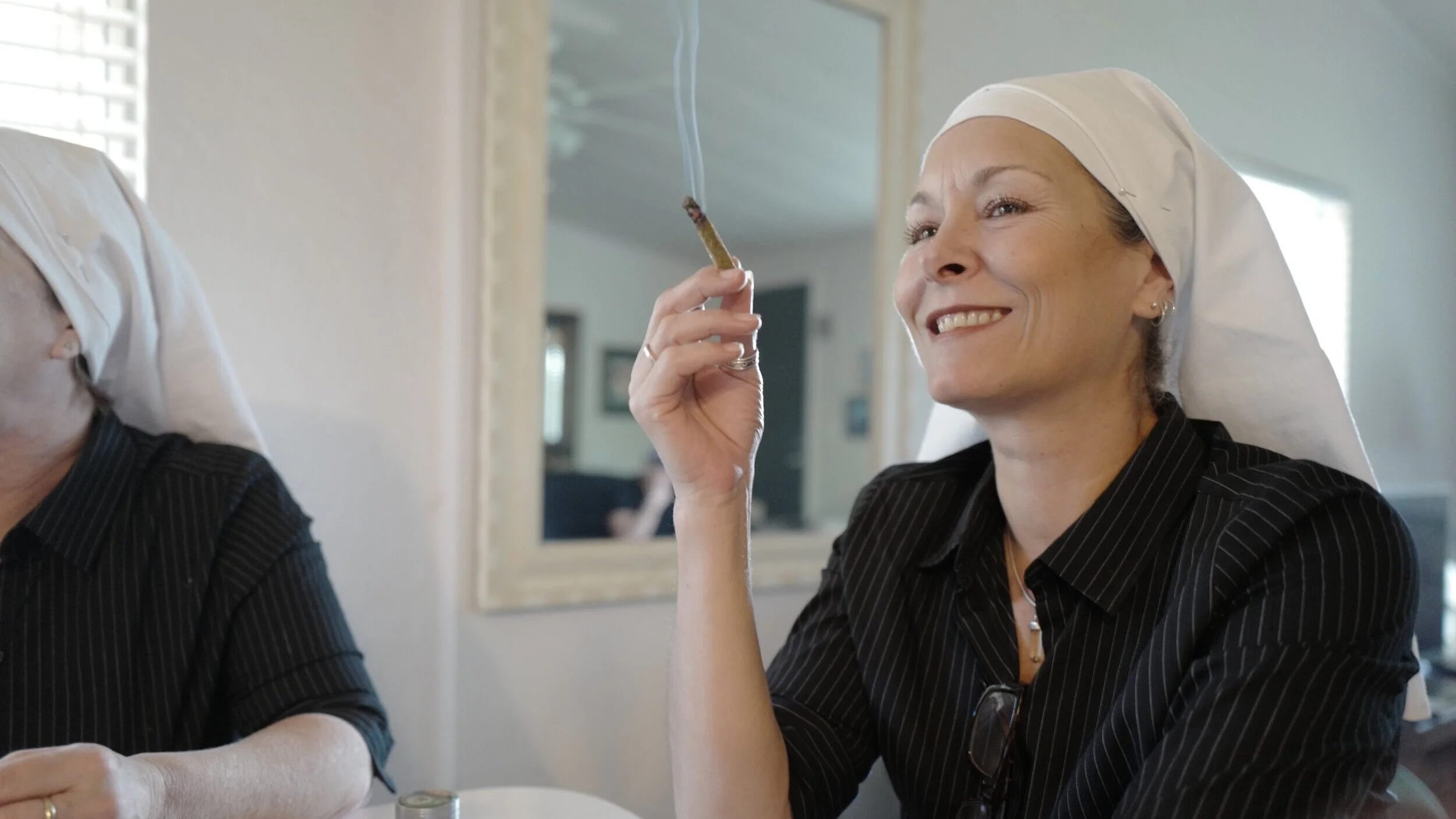Breaking Habits
A subjective documentary that will produce very different responses from viewers.
Screen centre in Rob Ryan's documentary is Christine Meeusen who now presents herself to the world as Sister Kate. She lives in Merced, California and is the leading light in a group of women known as The Sisters of the Valley. Ryan allows Sister Kate to tell her own story and she does so in sufficient detail for Breaking Habits to count as a biopic (we learn of her business acumen, of her ill-fated marriage to a bigamist who purloined the money she made and of her betrayal by a brother who, having given her a home, threw her out). Nevertheless, the heart of Breaking Habits is to be found elsewhere. Sister Kate is a firm believer in the medicinal properties of cannabis and, setting out to grow it within the limited legal limits, she found herself having to fight for a licence in this respect. Ryan's film is a cri de coeur on her behalf.
I should say here that I myself have never been attracted to drug taking and, having grown up hearing alarming tales of addiction, am not somebody likely to embrace this film. Had it set out to consider Sister Kate's views carefully with a measure of objectivity and had then made a rounded case for supporting them, I might have been won over. But in fact the film is assembled in such a way that those who speak out against cannabis - be they preachers, policemen or others - are all portrayed as extremists, the villains of the piece and not fit to be taken seriously. In contrast, Sister Kate is paraded as the film's heroine and, when we hear conflicting statements regarding her brother's behaviour, we are certainly expected to believe her and not him without a second's hesitation. Yet her outlook and conduct is odd to say the least. She would indeed form The Sisters of the Valley and late on she describes her wish to sell cannabis as "a sacred calling to healing", but these women who wear habits are not nuns and why they present themselves as they do is never explained. For that matter, it is never clear why of all possible ways of making a living Sister Kate should have chosen to grow cannabis in partnership with her unreliable brother: the issue of licensing and the potential problems with cartels even if her crop was intended only for medicinal uses could surely be foreseen. Her son Alex does appear to be an example of somebody who was helped by this means to get out of addiction, but that he succumbed to addiction in the first place warns of the dangers inherent in taking drugs.
While the major flaw here is the subjectivity applied to a subject that cries out for a different approach, it is also the case that the level of filmmaking on view is feeble. The banality of the music heard on the soundtrack is reminiscent of the most inane television programmes and, as an attempt to create extra drama, the decision to add the sound of gunshots when a past incident of violence is discussed is equally unintelligent. Those who have no hesitation in regarding any restrictions on drugs as evil may see Sister Kate as an inspiring figure and may well embrace both her and the film. However, I find it difficult to believe that either she or the film deserves that response.
MANSEL STIMPSON
Featuring Sister Kate, Alex Meeusen, Vernon H. Warnke, Ray Framstad, Joseph Meeusen, Zane Hanson, Larry D. Morse II, Clinten Landrum, David Dewey, David Alvarez, Sister Eeve, Sister Freya.
Dir Rob Ryan, Pro Nick Taussig and Paul Van Carter, Screenplay Rob Ryan, Ph Mikul Eriksson, Ed Tom Meadmore and Alex Rossiter, Music Jake Walker.
Salon Pictures/Film Constellation/Deuce-Signature Entertainment.
87 mins. UK. 2018. Rel: 26 April 2019. Cert. 15


